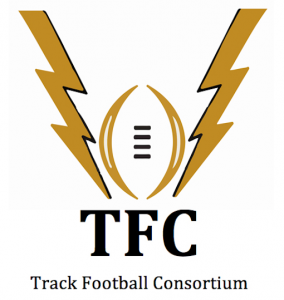A Football Coach’s Guide to Feeding the Cats

By Tony Holler
Twenty years ago I stumbled into a training system that I coined Feed the Cats. Initially, the system was intended for fast-twitch athletes and sprinters in particular. I now see everything though the lens of Feed the Cats. Last summer I wrote a trilogy of football articles. Some football coaches saw my ideas as revolutionary. Others saw my ideas as blasphemous.
In this article, I’m going to propose an overarching program for training football players as high performance athletes. I realize that many of you are highly evolved, highly educated coaches who know the difference between training a racehorse and training a plow horse. I hope to offend the rest of you.
Primon No Nocere
“First, do no harm.” Too many football coaches literally cause harm. (I’m going to use the term “football coaches” as though I’m referring to old-school hard-headed Neanderthals, not the highly-evolved species reading this article.) The first pillar of Feed the Cats is hormesis.
Hormesis is a medical term describing dosage. 500 years ago, Paracelsus said, “Everything is a poison, nothing is a poison, it all depends on the dosage.” Football coaches are 500 years behind the times. They fail to recognize the poisonous effects of practicing too hard and too long.
200 years ago, Hugo Schulz, echoed the ideas of Paracelsus, “For every substance, small doses stimulate, moderate doses inhibit, and large doses kill.”
Dosage is the primary component of “primon no nocere”.
High-performance demands a less-is-more approach. My track practices are ridiculously short. Football coaches are the most notorious volume offenders in the sports world. It’s so bad the NCAA had to put limits on practice time (20 hours per week).
Practicing long and hard will turn your horses into plow horses. If this isn’t horrible enough, the physical nature of football makes high-volume work into a survival contest. Long practices result in more injuries. I don’t have the stats, but “you don’t need a weatherman to know which way the wind blows.”
Speed Reserve
Speed reserve is a term used by track coaches.
“The faster your max-speed, the faster your sub-max speed. “
This is how I define speed reserve: “We train at 100 mph so 80 mph feels comfortable. Teams that train at 60 mph will feel uncomfortable at 80 mph.”
All football coaches preach hard work. It’s their religion. I preach high speed. I’m a football atheist.
Going hard never equates to going fast. The typical football team practices hard every day and never gets out of third gear. In the high performance world, this is unacceptable.
Too many of you are now making the argument that most of your players are not “cats”. Big guys must be driven to “go hard” because they’re slow. Big guys are plow horses. I would argue that speed and explosiveness should be valued for every player. Why are fast offensive linemen picked first in the NFL Draft?
Outcome-Based Football
I’ve known football coaches who would rather lose than be outworked. Think about that for a minute. If you over-value practice, you are a process freak. The religion of football celebrates process.
I’ve taught for 37 years (chemistry) and I’m an outspoken radical when it comes to standardized teaching and standardized testing. Outcome-based teaching sucks because the process of learning is key to the classroom. Multiple choice tests do not accurately measure the should-be objectives of education (love of learning, love of reading, curiosity, independent thought, and questioning authority).
Football is different. We practice to play well in games. We must teach to the test. Stupid is a bad word, but practice that fails to translate to performance is flat-out stupid.
Steve Jobs, when talking about what went wrong with Apple in his absence, “People get confused. Companies get confused. When they start getting bigger they want to replicate their original success. And they start to think that somehow there is some magic in the process of how that success was created. So they start to institutionalize the process across the company. But before very long people get confused and think the process is the content.” Steve Jobs accurately describes every football program I know.
Amplification Through Simplification
When you make speed the priority, all things fall into place. When you have too many priorities, you drown in shallow water. Football is mainly alactic, a function of the phosphocreatine system. You get aerobic benefits from the heart rate staying high between reps. There’s no need to focus on the aerobic system (long runs, stadium stairs). There’s no need to focus on glycolytic lactate production (intense runs of 10+ seconds or crowding shorts sprints together with little or no rest). Stay alactic-specific to stay fast.
“He who chases two hares catches neither.” Football coaches chase too many hares.
One of my sprint mantras is, “Sprint as fast as possible, as often as possible, staying as fresh as possible.” This is exactly how football practice should be conducted. Conditioning and general fitness decrease speed and is not football specific.
Hard-Easy
The legendary Oregon track coach, Bill Bowerman, believed he could get more out of his athletes if they prepared for hard workouts by going easy the previous day. World records are not the product of low-intensity exercise.
When I tell coaches, “Practice is overrated”, they look at me as if I was Judas Iscariot. Obviously practice is important but I value rest and recovery more than practice. Yes, you read that right. Recovery is more important than practice because without recovery, you can’t practice at top speed. Recovery is the precursor to effective practice. My team had a track meet Thursday night. My sprinters will take Friday, Saturday, and Sunday off. Cats sleep 20 hours a day.
If you are still reading, stay with me on this one. I understand that my athletes are training for events measured in seconds. Track may be high performance on steroids (double entendre!), but football values the same high-speed performance as track. The average play in a high school football game lasts 5.6 seconds. Some running plays are over in two seconds. The average time between plays is a whopping 30.8 seconds. The average NFL game lasts 3 hours and 12 minutes. Only 17 minutes of football is played, loitering fills the remaining 175 minutes. Football sounds a lot like a track meet.
If you want high performance, you can’t practice long and hard every day. You can’t grind. “THE GRIND” is one of football’s sacred terms. The typical football coach was a try-hard slow guy back in his playing days. The grind (the work) became the central focus of his life. As a coach, that “try-hard slow guy” brings his past into the present.
My football practice schedule for high schools playing on Friday night would be as follows.
♦ Monday = sprint day; high-speed reps with enough rest to repeat next rep at high speed. Tired is the enemy, not the goal. The fact that players had Saturday and Sunday to recovery from Friday’s game makes Monday the perfect high-speed day.
♦ Tuesday = fundamentals and game preparation; not a walk through but nothing at top speed. Tuesday is a recovery day in order to practice at game speed on Wednesday.
♦ Wednesday = game-speed day. This will be the hardest practice of the week. The speed of practice will not be “sprint speed” like Monday. Instead, players will be forced to adapt to incomplete rest. Crowded alactic work will simulate the fast pace of hurry-up football. My friend, Cal Dietz, calls this aerobic work. I call it alactic work with incomplete rest. Yes, the heart rate stays high but it’s still high-speed effort, not high-volume endurance work.
♦ Thursday = no practice! Yes, now I’ve lost all the process-driven, rather lose than get outworked, old-school, love the grind, football guys. (Oh yeah, I forgot, only highly-evolved, highly-educated coaches read this kind of stuff). Seriously, a day of rest will do wonders for energy levels on Friday night. Football is not afternoon daycare for post-pubescent boys. Football is about high performance on game night. If you must practice on Thursday, have a short walk-though.
♦ Friday = win the game
♦ Saturday = off.
♦ Sunday = off.
What? Football is not a part-time job! Football is everyday! 24-7-365! You can’t win with a four-day workweek! Well, I say opposite is true. Not only should you consider a four-day workweek, but try to keep all practices less than two hours. Simplify your playbook. Do less and do it better. #Essentialism. Oh, one more thing, no conditioning at the end of practice. Racehorses are not plow horses.
Let me sum up my practice week. Big rest is needed to recover from the week’s hardest workout, the game. That same weekend of rest prepares athletes for sprinting at top speed on Monday. Tuesday takes care of fundamentals and game prep, but also gets the team ready for the all-important game-speed practice on Wednesday. Thursday allows for recovery and gets the team ready for Friday’s game.
If you are a football coach, your palms are probably sweating. How can you win without outworking your opponent? Most coaches try to run game-speed practices every damn day. Nothing pisses off a football coach more than a lack of intensity at practice. However, the lack of intensity is not the fault of the players, it’s the fault of the coaches.
Sprint coaches get kids ready for long sprints by doing low-volume high-intensity “lactate workouts”, but not every day. Terrible track coaches run their kids 10 x 200 every day and expect good performances at track meets. This is analogous to go-hard-every-day football. Do marathon runners run 26 miles in practice? Do marathon runners run 26 miles every day?
A football player needs to learn how to play at top speed, but he also needs to learn to play soaking wet with his heart thumping. But you can’t do both every day. If your football team practices at high speed once a week and practices at game-speed once a week, that’s enough. That’s minimum effective dose. That’s hormesis.
Get Rid of Military Thinking
Football is not war and football players are not soldiers. Stop trying to turn boys into men. Take down the military slogans from your locker room walls. Stop putting your kids through Navy Seal training.
When you “feed the cats”, you become performance-based, outcome-focused, and your goal is minimum effective dose. You don’t have time to crawl under barbed wire, because you prioritize blocking and tackling. Your receivers are busy running lightning-fast routes and resting long enough to repeat them. Football is a high-performance game, not a crusade to take back the Holy Land.
Servant Leadership
Football has always been a top-down operation. Rewards and consequences. Praise and verbal abuse. If you “feed the cats” coaches share the ownership of the team with the players. Ownership is a powerful drug.
I believe strongly in the metaphor of a gardener. Coaches should, like a gardener, prepare the soil, plant the best seed, pull weeds, pray for good weather, and fertilize with tons of bullshit. Like a gardener, coaches simply create the best possible conditions for success.
Feed the Cats is a mission, not a set of goals. “Goals are something you achieve, a mission is who you become” (from Joshua Medcalf’s Transformational Leadership).
Creating Meaning and Significance in Practice
In my track practices, we measure every speed effort. We measure 10, 20, and 35 meter flys. We measure 10, 20, 30, and 40-yard flys. Sometimes we come out of the blocks and run through a 10 yard fly. Why so many metrics? I want kids to see improvement. I want documented success. I want meaning and significance in practice.
We quantify our workouts as well. When you simply “do” a workout, meaning and significance is seldom achieved. As a football coach you must find ways to make practice more than “just practice”.
Shameless Promotion
I promote through Twitter (@pntrack). I post quantified practice results. I post video. I post some of the best track & field pictures you’ve ever seen. I make track & field look better than it really is.
When I promote, I only publish facts. I never boast of average kids being superstars. If you lack honesty, promotion becomes fake news.
When I played football, our games were on the radio. Newspapers covered our games. Today’s football players probably don’t keep a scrapbook. When you “feed the cats”, you promote your kids. You make the sport better than it really is.
Get a Twitter account. Have someone update game scores in real time. Ask a parent with an expensive camera to take pictures on the sideline, lots of them. After the game request a couple good shots of certain players who deserve recognition. Don’t be afraid to do this in practice. Make football look better than it really is.
Feeding the Cats, Good for the Soul
My philosophy evolved from the time I was born. I was born a coach’s kid in 1959. My father, Don Holler, coached basketball for 47 years. I witnessed the exciting wins and the crushing defeats. My father took the wins and losses personally. I witnessed them first hand.
I’ve coached for 37 years and it’s never been more fun. I have the honor of coaching a sprint phenom. Last year Marcellus Moore set the age-14 world record in the 100 meters (10.40). This year Marcellus broke the Illinois 100m record, running 10.31. Plainfield North set the 4×1 state record. Coaching is fun because I “feed the cats”.
My practices are short and my athletes love track & field. I am inspired every day by kids who see meaning and significance in their work. My guys take ownership in the team and perform at a high level.
I’ve eliminated everything I could eliminate and accepted the idea that practice is overrated. My teams practice at 100 miles per hour. I see things simply and practice essentialism on a daily basis.
Sometimes I get nervous before a big race but it’s not life and death. I’ve created the best possible conditions for success and have surrendered to the outcome. I’m on a mission.
#FeedTheCats
+++
♦ SPRINT-BASED FOOTBALL ♦
Sprint Based Football webinar… four guys (me, Brad Dixon, Kurt Hester, and Dan Casey) presented and answered questions for 4 hours and 20 minutes. It can be purchased here:
+++
Tony Holler
@pntrack
630-849-8294
tony.holler@yahoo.com
+++
RESOURCES
The 2019 Three-Part Football Series
♦ Football Coaches: Too Many Priorities
♦ Football Coaches: Stop Doing Mindless Conditioning
Feed the Cats:
♦ Origin and Philosophical Basis of Feed the Cats
The Football Articles:
♦ New Ideas for Old School Football Coaches
♦ Football Dosage and Approach ⇒ FAQ
♦ Football: Differentiating Sprint Practice and Non-Sprint Practice
♦ A Football Coach’s Guide to Feeding the Cats
Football Podcast
♦ Run the Power with Tony Holler
♦ Run the Power with Tony Holler #2
♦ Coach and Coordinator Podcast with Tony Holler
Brad Dixon:
♦ They Just Want the Damn Recipe
♦ Run The Power Podcast with Brad Dixon
+++
Feed the Cats Track Bundle – 50% off the Feed the Cats Track Package
Feed the Cats Football Bundle – 50% off the Feed the Cats Football Package
Want all the Feed the Cats stuff (track, football, speed)? Get all SIXTEEN COURSES for only $255. Click here.



Thank you for this innovative and thought-provoking article! My question involves any thoughts you would have on how to adapt the “Feeding the Cats” philosophy to basketball. Specifically, how would you incorporate this into a competitive season with games on both Tuesday and Friday nights?
http://trackfootballconsortium.com/basketball-advice-from-a-sprint-coach/